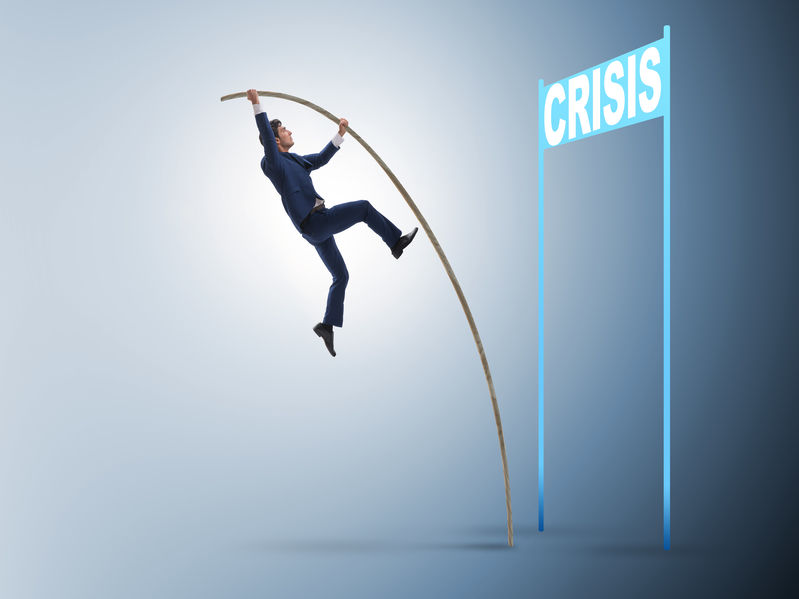 People sometimes find themselves in financial situations where declaring bankruptcy is the most viable option. For instance, imagine someone facing a dire medical condition that ultimately results in unemployment, depleted savings, and maxed out credit cards. Getting a new job is almost impossible because of the illness, and monthly payments pile up to astronomical numbers. Filing for a Chapter 7 bankruptcy might be the next logical step. Indeed, 66.5 percent of all bankruptcies are tied to medical issues. However, people file for bankruptcy for many other reasons.
People sometimes find themselves in financial situations where declaring bankruptcy is the most viable option. For instance, imagine someone facing a dire medical condition that ultimately results in unemployment, depleted savings, and maxed out credit cards. Getting a new job is almost impossible because of the illness, and monthly payments pile up to astronomical numbers. Filing for a Chapter 7 bankruptcy might be the next logical step. Indeed, 66.5 percent of all bankruptcies are tied to medical issues. However, people file for bankruptcy for many other reasons.
Filing for bankruptcy is usually seen as an easy way out of debt; however, it is not without consequences. Under Chapter 7 bankruptcy, your non-exempt assets are not discharged. Nonexempt assets vary from state to state, but some general examples include a second home or car and jewelry. These assets are liquidated to settle part of your debt. Furthermore, declaring bankruptcy will impact your credit score, making it more difficult to secure loans.
However, bankruptcy is not the end of the world! Seeing it as a chance for a fresh financial start can make all the difference. That’s why we’re going to explore steps to help you come out stronger after bankruptcy.
Seeing it as a chance for a fresh financial start can make all the difference. That’s why we’re going to explore steps to help you come out stronger after bankruptcy.
Develop the Right Frame of Mind
In the months leading up to declaring bankruptcy, you probably had several creditors on your neck. This is enough to cause immense stress. However, declaring bankruptcy is enough to make you feel like a failure and even embarrassed. While this is unavoidable, you should take conscientious actions to get past it. With bankruptcy, you’ve settled a large part of your debt. It’s now time to move on!
Self Introspection: How did you get there in the first place?
Knowing why you got into financial ruins can help ensure you don’t repeat the same mistake. For instance, were you living beyond your means? Were you over-borrowing? Did you fail to have an emergency fund? Understandably, some situations like prolonged unemployment or serious medical condition may not be your fault. However, many people get into serious debt by their own doing.
Just something as simple as developing a realistic budget and sticking to it can help you better manage your finances. But you first have to know the problem.
Rebuild Your Credit Score
How bankruptcy will affect your credit score depends on your prior standing. If you had a good credit score of 700 or above, expect your credit score to plummet by over 200 points. If your prior credit score was closer to 650, expect your score to drop by up to 150 points.
With this bad credit score, obtaining a loan, credit card, or mortgage with favorable terms becomes extremely difficult. A low credit score can also affect your ability to get a job, especially in a finance-related role. That’s why rebuilding your credit score is important. However, note that this is a slow process that requires patience. Here are some suggestions on what to do:
- Get a job!
There’s no getting out of your financial mess if you don’t have a job. It’s no rocket science! It would help if you also made enough to ensure that you can pay more than the minimum monthly payments. Doing so consistently will gradually help improve your score. To make enough money, you may need to gain extra certification to earn more, or you may consider working multiple jobs in the meantime.
- Stay away from lines of credit or major credit cards.
You have to wait eight years after the first Chapter 7 case filing date before filing the second case. Financial companies know that. Hence, some may be willing to offer you money. However, it comes at a very high price. The interest rate on such cards is so high that if you fail to manage them properly, you can end up paying two to three times the amount you borrowed.
Instead, you can opt for secured credit cards. These are cards that require a cash security deposit to protect the issuer in case you don’t pay your bill. Using the card to cover monthly payments like phone bills is a good way to limit the amount you spend. By managing your spending properly, you will begin to see improvement in your credit score.
- Check your credit card often.
While recovering from bankruptcy, it’s important to check your credit report often for errors. Ensure that the accounts listed are yours. Simple mistakes can make it difficult to rebuild your credit score. Furthermore, by checking your credit card often, you can monitor your progress and stay motivated.
- Pay your bills
While this is a no-brainer, it is worth re-emphasizing. Your post-bankruptcy credit must stay clean. This means you have to stay current on all your monthly bills, paying them when due. Failure to make a payment – either due to a mistake on your part or overspending – may harm your credit. At this stage, you want to avoid even the slightest form of backsliding.
Conclusion
Do not be deceived: life after bankruptcy is not easy. However, many others have found their way back to financial freedom within a few years. With determination, you too can do it!
We’re here to help. Contact us here today.

